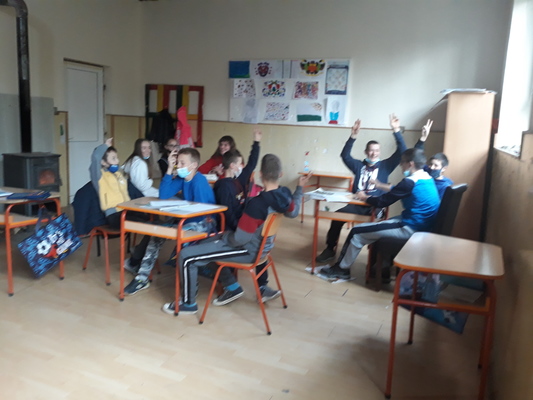OŠ "Đuro Ester" Koprivnica - Croatia
THE INFLUENCE OF THE MEDIA ON THE IDEAL OF BEAUTY.docx
THE INFLUENCE OF THE MEDIA ON THE IDEAL OF BEAUTY
Who decides if we are beautiful enough?
In the age of the internet and social networks we are constantly under pressure imposed by the appearance that is considered ideal and desirable as well as essential for a successful and happy life. Social trends that decide what is beautiful and what is not affect the attitudes and behaviour of people, especially young people who are in the process of developing their personality. The media play a major role in promoting the ideals of beauty.
From corsets to ripped jeans, fashion is constantly changing. Fashion and the concept of beauty have been changing throughout history. Similar to modern hairstyles worn today, ancient Egyptians wore braids that framed their faces. They used black eye make up and red lipsticks. In ancient Greece the ideal man had an athletic muscular body while an ideal woman had a fuller figure. In Victorian England corsets and tiny waists reached their peak. In the 1920s women in the USA were given the right to vote. Short hair and boyish figure became popular at that time. The 1990s fashion popularized a very skinny look. It was fashionable to be as thin as possible. As a result a large number of unhealthy and dangerous diets were introduced. Basic food such as bread, meat and fat was eliminated from the diet and it was often replaced by sugar. All of a sudden skeletal models instead of real women walked down the runway.
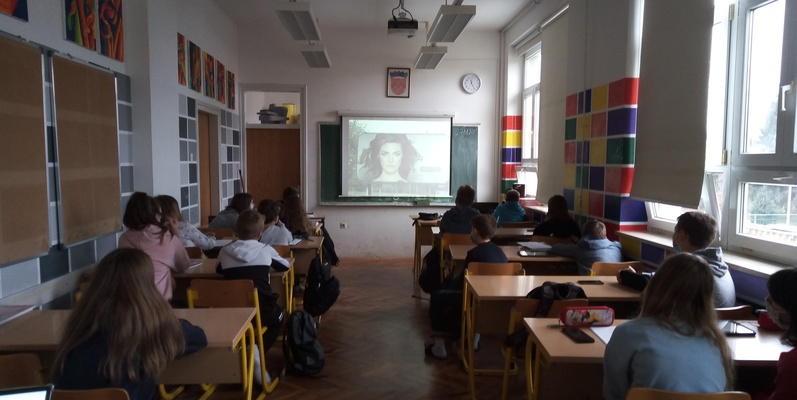
Nowadays it is trendy to live a healthy life, eat healthy food and include all types of food in your diet. It is also becoming important to be content and feel happy in your own body. Fashion magazines hire plus-size models and advertise clothes that can be worn by anyone. However, most of the media continue to impose thinness as the ideal of beauty. Many young people, influenced by the media, want to look like their idols so they starve themselves or use unhealthy dietary supplements in order to achieve desirable weight or physical appearance. They are insecure and dissatisfied because they only see the difference between their physical appearance and that of their idols neglecting their individual virtues and positive traits. Low self-esteem and a negative self-image often result in eating disorders that can escalate into serious mental and physical problems that require therapeutic treatment. Advertising slogans, such as ‘Be beautiful to yourself’, used by large cosmetics companies, influence the opinions and behaviour of their current (and future!) consumers. If a person does not feel beautiful or satisfied enough, he/she is offered products that will make him/her beautiful and thus, supposedly, happy. The pursuit of perfect looks imposed by our surroundings does not affect only girls but also boys. Dissatisfaction with one's own body is manifested in excessive exercise and training and the desire to achieve an unrealistic picture of what it means to be beautiful. The idea that good looks mean masculinity and success is particularly emphasized by the media.
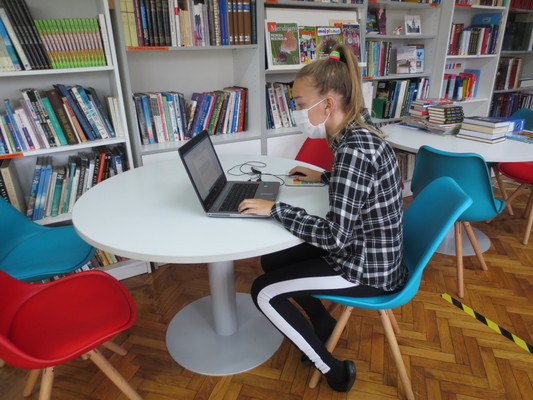
Nowadays there are treatment centers that help people with eating disorders and those who do not feel satisfied with themselves. A good example of such treatment center in Croatia is the BEA Center, which operates under the slogan You are beautiful. They often have young patients with bulimia and anorexia that was caused by unhealthy diet. Healthcare professionals and experts in the fields of psychology, psychiatry, psychotherapy and social work provide support to patients with eating disorders and their families, implement prevention programs, and educate the public. They help people become what they are, accept themselves and their body, and feel truly satisfied in it. More detailed information about the BEA Center can be found on the official website at: http://www.centarbea.hr/o_nama.
Being content in your body and beautiful on the inside, learning to be a friend and achieving your own goals is much more important than whether you look like a singer or an actor who is currently popular. After all, many celebrities publicly admit that, in their desire to look beautiful, i.e. skinny, they exhausted themselves and their bodies to the point where they did not feel happy at all. Let’s ask ourselves why we hang out with a friend - because of his looks or his personality? What is more important for a successful relationship with other people - beauty or kindness? Does physical appearance really determine happiness? Are we going to allow media slogans to influence our opinion and our behavior, or are we going to think for ourselves? In order to avoid creating an image of ourselves according to the expectations of others, it is necessary to evaluate the content of the media critically. One should be aware that, in order to present the perfect look, the media use advanced photo editing techniques, so the well-groomed faces on the screen are unrealistic and far from real. Media literacy means "reading between the lines" and evaluating what lies behind them - useful health advice or imposing ideals in order to sell products and make money.
Look in the mirror,
Smile,
Raise your head and say:
'That's me!'
Mirta Jurić, 6.c
OŠ Sveti Petar Orehovec - Croatia
Millions of girls.docx
Millions of girls without schooling opportunity are forced to ……
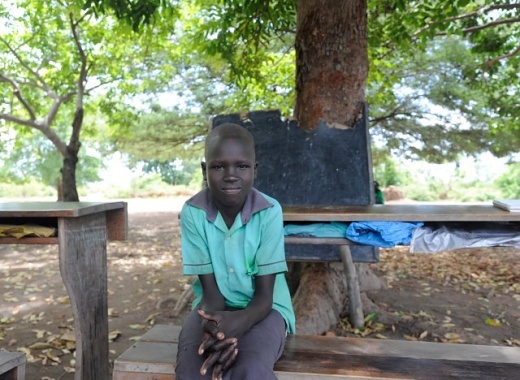
On the occasion of International Girls’ Day, we investigated the consequences of not educating girls
It is rare in Croatia for girls not to finish primary school. But not all girls in the world in the 21st century are lucky to have the opportunity to attend school. On International Girls’ Day (celebrated on October 11th) we learned this by searching the internet.
LIBELA, a web portal that writes on themes of gender, sex, and democracy, in the ARTICLE from 2018, writes that around 132 million girls between the age of 6 and 17 worldwide do not attend school. They also cite that less than two-thirds of girls from economically less developed countries finish primary school and only one-third finish high school. The same article mentions the World Bank report. The report states that the world could be earning between $15 billion and $30 billion more if every girl in the world would have spent 12 years getting a proper education. Education would not only contribute to a better economic situation, but also reduced domestic violence, and a small number of child marriages.
Nigeria and Bangladesh have the highest number of child marriages
We also found in LIBELA’s ARTICLE (31st March 2016) that Nigeria and Bangladesh are the countries with the highest number of child marriages in the world. In Bangladesh, as many as three-quarters of girls are married before turning 18. Girls’ education also contributes to a lower risk of their children’s malnutrition when they deliver them, and their children are more likely to attend school themselves.
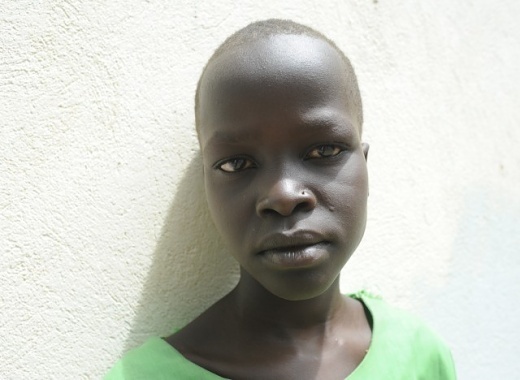 Bakhita Ngok (10, from South Sudan) – wants to become a governor
Bakhita Ngok (10, from South Sudan) – wants to become a governor
a photo was taken from the Libela.org
In addition to girls without education, girls with no education are more likely to end up in child marriage in some countries, they are also at greater risk of joining armed groups. In another LIBELA ARTICLE from 2016, Healy said: “I’m not going to do anything about it. It says that girls make up a third of children affiliated with armed groups. To them, it was their only choice not to be hungry and have some money.“
International Girls’ Day has been celebrated since 2012 with the aim of recognizing girls’ rights and their equal opportunities around the world. /Anastazija Blagaj, 7.b; photos taken from Libela.org/
SCOALA GIMNAZIALA "MIHAI EMINESCU" ALEXANDRIA - ROMANIA
Do we have real friends.docx
Do we have real frineds?
Do we have real friends?
Friendship means trust, sincerity, a connection of the soul, which cannot be broken by anyone or anything.
Goodwill is not enough to forge a friendship. It is not enough to want a friend, you have to make an effort, to become someone's friend yourself. In principle, anyone could maintain a true friendship, respect certain rules and "obligations" and then enjoy all the rights, freedoms and fulfillments they bring you. If the people you call friends are the people you occasionally meet in the city, in the park, or on a weekend walk, the notion I'm trying to reach may seem a little exaggerated. This is because no one sees friendship as a serious relationship, in which you have to put considerable effort into making it work. The emotional involvement and sacrifices you make willingly and unforced by anyone are, from my point of view, the cornerstone of an ideal friendship. When you call at two in the morning and ask for help, you need to get one firm answer: ok, come on, don't get questions that start with: why ?. However, easy to say, hard to do. Especially when we have at every step examples of broken friendships, based on interest or in which trust is betrayed. Very few people understand what the word "friend" means and the responsibilities that come with it.
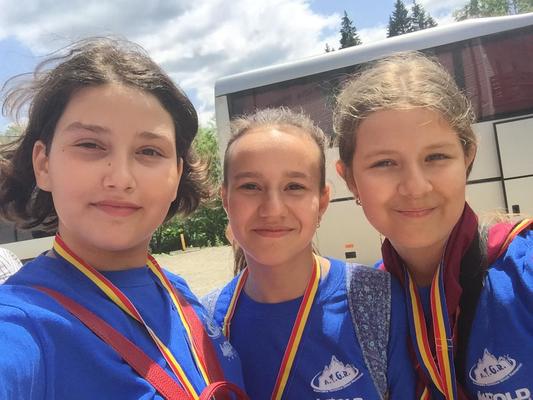
I enjoyed a few days this week with a dear friend who is not always close to me physically, but is close to my soul every day. We were desk mates for three years and now she lives with her parents in Bucharest.
Aristotle believed that in order to become a happy person, fulfilled on all levels, we must be a good friend. He considered friendship to be an art.
I've always said that life without friends is like a meal that misses dessert at the end. It is obvious how unsatisfactory the world would be in which we could taste all the cuisines of the world, without enjoying, in the end, the delight of a cake. True friendship, however, is more than that, it is the icing on the cake.
Do you have real friends?
"The only true friendship is one that was born for no reason."
Author-Maria-Alexia Popescu-5 A
Photo- Maria Popescu
The original article is published in the school online digital newspaper Media gerner@tion on the following link https://ziar.sceminescu.ro/via%C8%9Ba-%C8%99colii
GYMNASIUM SCHOOL Nr. 6 Suceva - Romania
ROBOTICS AT THE GYMNASIUM SCHOOL NO. 6 SUCEAVA / ROMANIAROBOTICS AT THE GYMNASIUM SCHOOL NO. 6 SUCEAVA / ROMANIA
ROBOTICS AT THE GYMNASIUM SCHOOL NO. 6 SUCEAVA ROMANIA.docx
ROBOTICS AT THE GYMNASIUM SCHOOL NO. 6 SUCEAVA / ROMANIA
Online robotics event at the Gymnasium School Nr. 6 Suceava, funded by Meet and Code 2020!
The Association of Teachers and Parents of Students from the Gymnasium School Nr. 6 Suceava obtained the financing of 300 Euro for the online robotics event with the students of the Gymnasium School Nr. 6 Suceava. The project was addressed to the students of the preparatory class and took place between 19 and 23 October 2020, in an online environment exclusively due to the special conditions imposed by the emergence of the new SARS-CoV-2.
The online event "Beet-Bot Beetle - the supporter of the preparatory class" won funding through the Meet and Code initiative (https://meet-and-code.org/) supported at European level by the software company SAP. In Romania, the initiative is coordinated for the 4th consecutive year by the #Techsoup Association and supports online technology and programming events aligned with the Europe Code Week mission.
The Techsoup Association, SAP Company, the German non-profit organization Haus des Stiftens gGmbH and the other partners of the TechSoup Europe network are the organizers of the Meet and Code initiative. It supports technology and programming events in 2020 in the following 35 countries: Romania, Austria, Belgium, Bosnia and Herzegovina, Bulgaria, Croatia, Cyprus, Czech Republic, Denmark, Estonia, Finland, France, Garmania, Greece, Hungary, Ireland , Italy, Kazakhstan, Latvia, Lithuania, Luxembourg, Malta, the Netherlands, Norway, Poland, Portugal, Russia, Serbia, Slovakia, Slovenia, Spain, Sweden, Switzerland, the United Kingdom and Ukraine.
The Meet and Code program is a great opportunity especially for those small non-profit organizations in schools that want to apply for European funding for the first time and want to be part of an international movement.
The youngest students from the Gymnasium School Nr. 6 Suceava got acquainted with the basic elements of programming with the help of the Programmable Educational Robot - Bee-Bot.
"This colorful, easy-to-operate and friendly little robot will teach children how to follow a sequence of steps and how to estimate results, how to solve problems but also how to have fun! I will introduce students to the functions of the Beet-Bot robot, children being stimulated to introduce increasingly creative and complex command sequences. Bee-Bot will be completed with a set of educational materials, consisting of various mats to send it on different trips. Subsequently, the robots will be used in teaching activities, accompanying the children as their knowledge progresses. It will help them in spatial awareness by imagining the best route for the Bee-Bot. Later, Bee-Bot will accompany them as they discover different animals, additions and subtractions, and even the geography of a country ", said the volunteer teacher Roibu Daniela Florentina.
Meet and Code supports the European Commission's Week Code Europe initiative and is aligned with the United Nations Sustainable Development Goals, which aim to contribute to a world where every young European has the digital skills to shape their own future.
Thank you, Meet and Code, to SAP and Haus des Stiftens gGmbH in Munich, to the TechSoup Europe network!
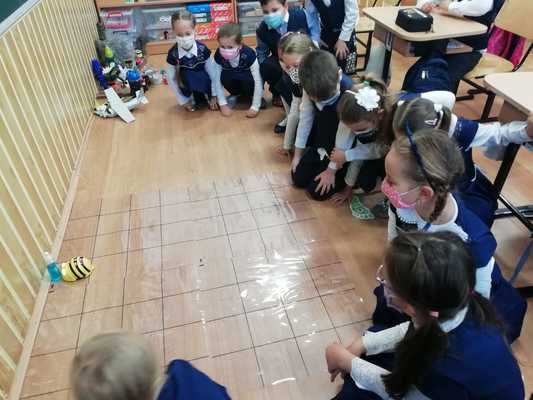
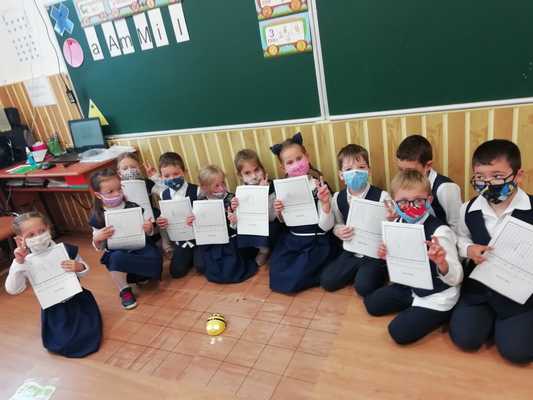
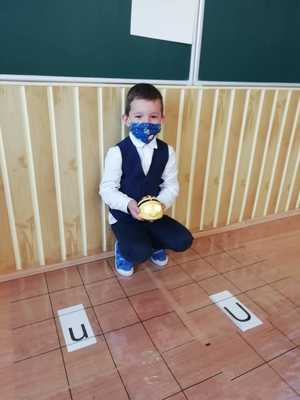
How to write basic newspaper forms.pdf
Kako napisati osnovne novinske oblike.docx
UPUTE ZA UNOS MATERIJALA NA TWINSPACE.docx
IC BERTLOTTI GAVARDO ITALY
Children's rights_article.pdf
EVERY CHILD DESERVES RIGHTS
Children's rights
We all have many rights in society, from early age to adults. Even when these rights increase, they seem to diminish, as we may stop worrying about it, we think they are details or we will not go further. But what about the child who is unaware of most of his rights? Do you know what a child's rights are? One thing every child deserves is a good education, another very important thing is to have access to culture and the means of communication and information, like Internet for example, socialize with others, children need to have friends and talk with others, children can't work like an adult, children need to have a good nutrition for them to grow healthy.
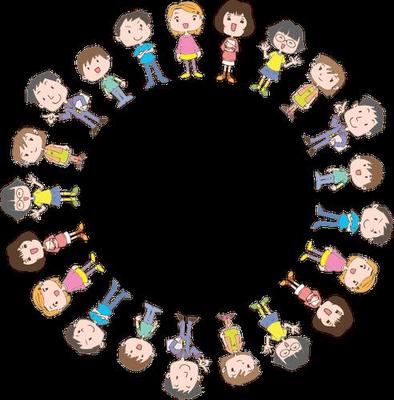
They have also the right to receive free medical assistance in public hospitals whenever they need assistance; be free to come and go, live in society and express ideas and feelings; having the protection of a family whether natural or adoptive, if parents and closest relatives are lost; do not suffer physical or psychological aggression from those who are in charge of protection and education or any other adult. Children have the right to be benefited by rights, without any discrimination by race, colour, sex, language, religion, country of origin, social class or wealth and every child in the world must have his rights respected.
Children have the right to a name and a nationality from their birth, that is be a citizen of a country. Unfortunately, these rights are not always respected. This is especially true in the poorest countries, where children live in very bad conditions. Adults sometimes instead of protecting and safeguarding children, mistreat and exploit them, thus becoming their worst enemies. Some people don't understand that children and teenagers are the future of the world, they will be future parents and grandparents. These are all the rights every child needs to have.
If we want for the next generation and the one after that to be smart and expand in life, these rights are essential to help every child to build his own life correctly. So take care of a child or a grandchild because they are our wealth.
Authors: Leonardo Andreo Toledo and Arianna Mora
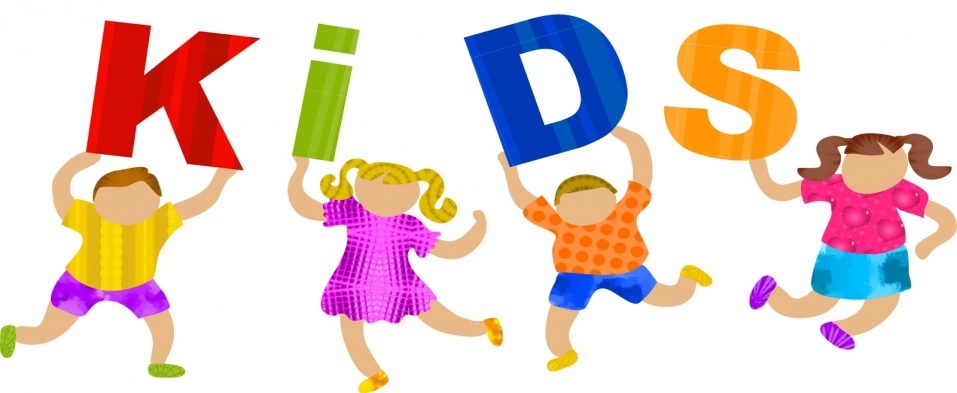
OŠ "Doistej Obradović", Ćićevac - Srbija
Accept a challenge, plant a tree, assemble a crew.docx
Accept a challenge, plant a tree, assemble a crew
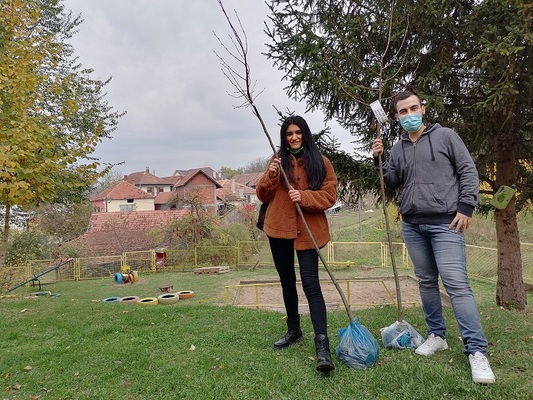
Eko Ćićevac is an informal group of five young people: Milena Blagojević, Aleksandar Simić, Ivana Petrović, Nikola Blagojević and Stefan Maksimović. It was created to raise the awareness of young people about ecology and preservation of nature.
Stefan Maksimović, conceptual creator of the project, has told us more about the idea behind the project:
“The idea of planting seedlings has existed for a long time. For an extended period of time, my colleagues and I have been thinking of the ways to incite people in Ćićevac to expand their awareness and preserve their environment. On all public green surfaces different kinds of seedlings are planted, but they are not cared for and in time they wither. I’ve been a witness when on more than a few occasions young people spill drinks on the seedlings or throw different kinds of junk, break branches, and this is when the idea that something must be changed emerged. This project was a sort of a green light for that. Conceptualizing the project didn’t take too much time, since we already had the idea and knew what we wanted to do and which activities we wanted to carry out. When you have a good idea, a great team, you want to change something, and you also get the support you need, it all becomes pleasurable, and the time is not a significant factor.”
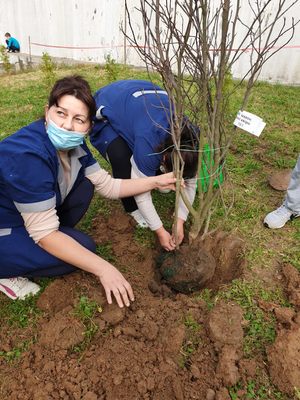
The ecological awareness of people in Ćićevac is not very high, and this is the main reason for launching this project. One of the activities in the project is putting up ecological messages near the places where a lot of people gather. In this way they want to motivate the citizens and make the messages echo in people’s minds before they make mistakes, and before it is too late. The project will have a positive influence on people. Young people and kids as well as all citizens must be aware of the environment and its importance for us all. A man is as healthy as his environment is clean and healthy.
Since 2000. untill today, The European Union has donated more than 3.6 billion euros to Serbia.
The funds were used as a support for the development, the quality of life and the reforms in the following spheres: civil protection, defense against floods and help for the flooded regions, education, cooperation, protection of the environment, health protection, consumers protection, culture, the rule of the law, local development, jobs and the economy growth, public administration, migration, management of public funds, civil society and the media, social inclusion, youth and sport. The EU support is implemented through the cooperation with the Serbian Government. The EU has donated more developmental funds than all of the other international donators together.
I have accepted the challenge, how about you?
We would like our message to be heard, people motivated and the awareness of people raised even outside of the boundaries of Ćićevac. The main goal is for us all to create a clean and healthy place for life, to follow these ideas and learn together.
So Accept the challenge, Plant a tree, Assemble a crew
You can also follow them on social media:
Instagram: @ekocicevac
Facebook: @Eko Ćićevac
Journalist: Sanja Ivanović
The original article is published in school digital magazine ĐAČKA ISKRA
OŠ Marija Jurić Zagorka, Zagreb - Croatia
Thumbs up for my friend.docx
Palac gore za mog prijatelja Davida.docx
Thumbs up for my friend, David
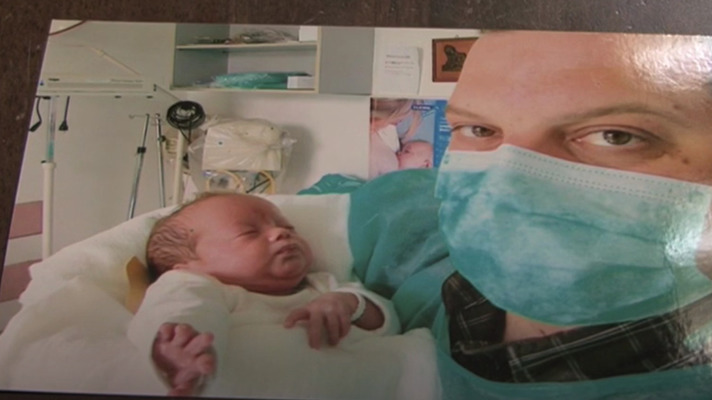 A premature birth happens when a baby is born before the 37th week of pregnancy
A premature birth happens when a baby is born before the 37th week of pregnancy
Around 5% of children in Croatia are born prematurely. The smallest ones are the strongest fighters.
Some babies are really impatient and they want to come into the world as soon as possible, like my friend, David.
''I was born when my mom was 7 months pregnant. She told me she was really scared when her water broke 2 full months before her due date.'' The eight-grader starts his story. David was born prematurely. By the age of ten, he spent a loto f time in the hospital. He couldn’t leave the hospital for a long time after he was born because of his early birth and jaundice, he also had to be incubated. Premature babies have to be incubated until they can eat by themselves and have gained enough weight. During the first year of his life, David’s teeth weren’t developing properly and he had to have a surgery. Next came the hernia and tonsils operations. Just when he thought he was done with hospitals, he had to undergo an emergency operation because of improper vasoconstriction in his head. He is reminded of this long operation by a scar behind his ear. Three years have passed and David feels fine, he sometimes gets headaches and he doesn’t do P.E. so he wouldn’t get hit in the head with a ball. He is a big brother to five younger sisters and three younger brothers. He’s bigger than his mom now and you can’t even tell he was a premature baby. He is a class favorite and he never mocks others.
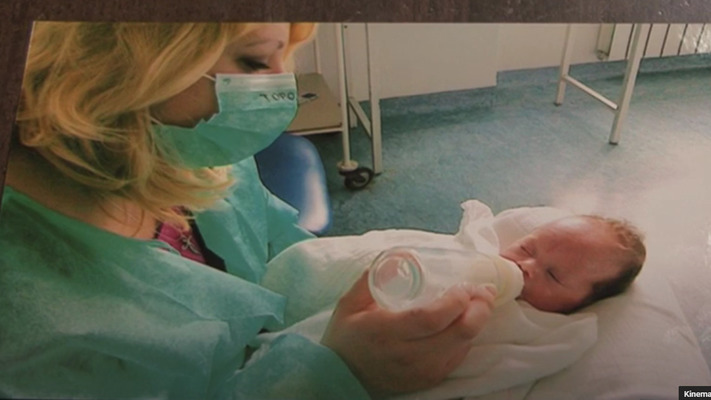
Thumbs up for little heroes
The 17th of November is marked as an International premature birth awareness day, i.e. Purple day. On that day, purple balloons are let into the air all over the Globe in order to remind everyone of the brave heroes with the smallest hearts. Humanitarian actions raise funds for new incubators and extra medical equipment needed to care for the prematurely born babies. Their motto is: Our strength is their courage! David has, even as a prematurely born child, overcome all obstacles thanks to his strength and the love and support of his family. /Tara Čolakić, 8.b/
OŠ “Ivo Andrić” Gornji Milanovoac
CHILDREN`S RIGHTS.docx
Dečja prava.docx
CHILDREN`S RIGHTS
Children`s rights have been established by Convention on the Rights of the Child.
One of them is the right of a child to live with his/her parents and to be looked after by them. We can often hear that a newborn child has been left in front of the church or even in the garbage container. What kind of people can do such a thing? Why don`t they provide a child with the most important right: to grow up with his/her parents?
Every child has the right to be protected from family violence. Why doesn`t it apply to all children? Some children witness domestic violence or experience parental abuse and even more painful insults.
Every child has the right to be heard, to express his/her opinion on all issues which concern them. In some environments children aren`t allowed to express their opinions, adults make all decisions instead. They tell children to be quiet, calling them ugly names without giving them a chance to say what they think. But children must be allowed to express their opinion!
We live with our parents, surrounded by love and happiness. Both our parents and school teachers want to hear our opinion with respect. That’s why we don`t want any child to be denied his/her rights! /Nikolina Trnavac, student 7.grade/
